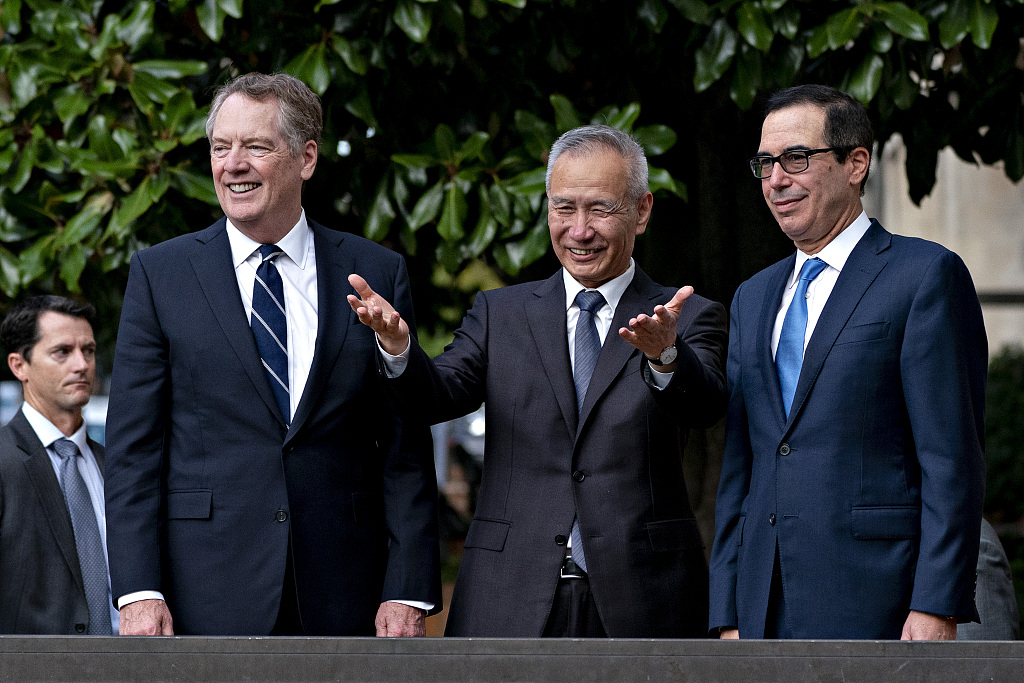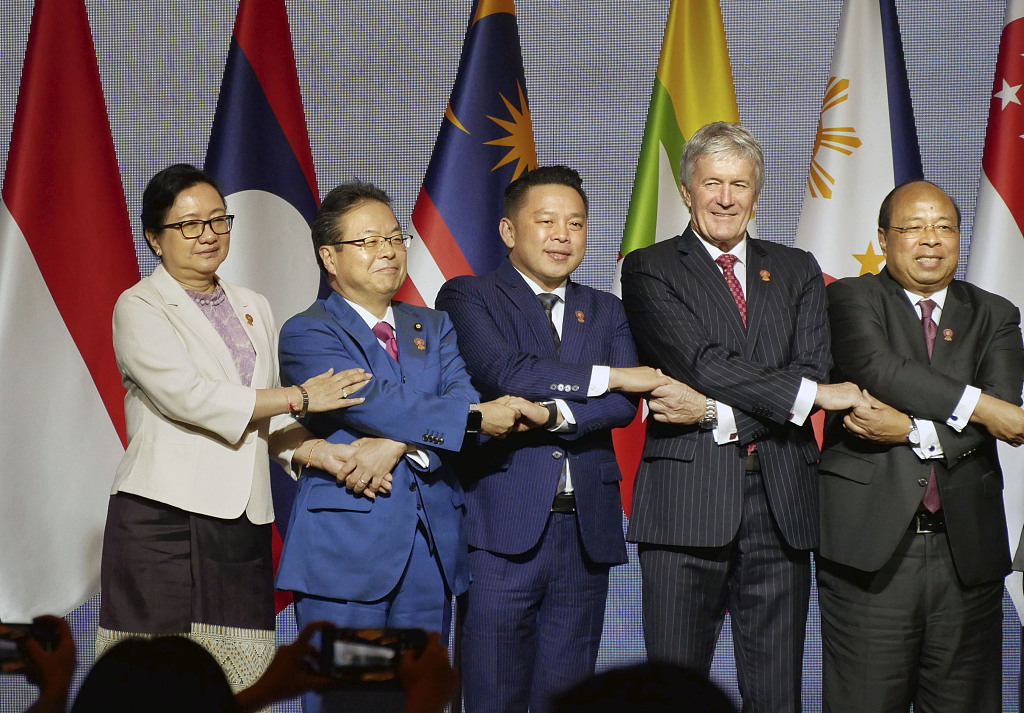Editor's note: Tom Fowdy is a British political and international relations analyst and a graduate of Durham and Oxford universities. He writes on topics pertaining to China, the DPRK, Britain, and the United States. The article reflects the author's opinions, and not necessarily the views of CGTN.
The U.S-China trade war has been waging on for over a year. Although now there is light at the end of the tunnel as the two countries start to pave the way for a "phase one" agreement, nevertheless, it has escalated in intensity with Trump pursuing a more and more belligerent stance.
In the process of doing so, the media sought to support the President's narrative by painting China's trade prospects in a dismal light. Reports have focused continuously on the idea that companies will leave the country, with jobs being lost, exports potentially collapsing, the economy going downhill, and so on.
To put it mildly, these reports are America centric, placing disproportionate emphasis upon the relevance, significance and role of the United States. While undoubtedly the U.S does play a huge role in China's trade and exports, nevertheless this manner of journalism fails to incorporate what might be described as a "bigger picture," such being firstly what China is doing in the background of the trade war with other countries, and secondly, a view to a long term perspective.
The media as a whole prefers short-term negative drama, one which amplifies the event of the trade war and dramatizes it as a titanic struggle between the U.S and China. However, building on the points above, what is not reported is that China's global trade prospects beyond the United States are getting better.
Throughout the course of the trade war, the western media have almost completely ignored how China has pursued a diplomatic path, which is extending, upgrading and setting out new free trade agreements. Some have been secured, some are on their way. Thus, this means things are not as bad as they seem for Chinese manufacturing, export markets and supply chain investment.

Liu He, China's vice premier (C), gestures towards members of the media while arriving for a meeting with Steven Mnuchin, U.S. Treasury secretary (R) and Robert Lighthizer, U.S. trade representative, at the Office of the U.S. Trade Representative in Washington, D.C., U.S., October 10, 2019. /VCG Photo
Liu He, China's vice premier (C), gestures towards members of the media while arriving for a meeting with Steven Mnuchin, U.S. Treasury secretary (R) and Robert Lighthizer, U.S. trade representative, at the Office of the U.S. Trade Representative in Washington, D.C., U.S., October 10, 2019. /VCG Photo
U.S. President Donald Trump is very powerful at setting narratives. Even if what he says in practice is a complete distortion or falsehood, the U.S. president has a simple and effective power with language which plays on the subconscious mind and influences how we think about things.
Throughout the course of the trade war, he has been quick to set out a series of simple yet effective slogans that sought to portray it in disastrous terms for China. He has claimed the country has lost millions of jobs, that companies are leaving in droves and that it is not hurting the U.S. The media have not necessarily rendered these claims as accurate, but in reporting them and while also largely placing a negative light on China's economy, have hardly gave ground to counter them.
As a result, the average western observer may be inclined to think Trump is bringing China to a "crash."
The flow of the U.S. president's skill with the media and reporting in general means they are not getting the full portion of the facts, and thus the fabled "bigger picture." As the trade war has gone on, it has been largely unnoticed that China has achieved trade successes elsewhere with long term implications.
First of all, last year, China signed a free trade agreement with the Eurasian Union, this bloc, an economic community consisting of Russia, Armenia, Belarus, Kazakhstan and Kyrgyzstan, opens China's exports to a single market of 180 million. The agreement entered into force this year. It comes in tandem with Belt and Road developments into central Asia.
Besides, China recently upgraded its free trade agreement with Singapore, deepening the number of sectors involved to include E-commerce, competition policies and the environment. Last week, China also signed a free trade agreement with Mauritius, becoming the 17th deal of its kind. More importantly, the Regional Comprehensive Economic Partnership (RCEP), a pacific wide trade agreement including Japan, ROK, Australia, New Zealand, India and ASEAN, is also finally reaching its endgame with New Delhi dropping key objections to it and a conclusion in negotiations set for November 4th.
Western audiences have not been informed of any of these developments.
In this case, context is essential. China has sought to approach the trade war not only by negotiating with the United States, but also expanding its markets and reach elsewhere too. While the President has pursued tariffs, confrontation and opened up multiple trade conflicts, Beijing has pursued diplomacy and free trade, making several gains with more to come. When viewed in this light, the conceptualization that Trump is ruining China's overseas trade, exports and economy is simply unrealistic.

Participants of the Regional Comprehensive Economic Partnership ministerial meeting pose for a photo in Bangkok on September 8, 2019. /VCG Photo
Participants of the Regional Comprehensive Economic Partnership ministerial meeting pose for a photo in Bangkok on September 8, 2019. /VCG Photo
Therefore as a whole, China's outlook is far more optimistic than what the drama and negativity of the mainstream media would have you believe. Beijing will continue to play a growing and pivotal role in global markets and commerce. For all, it provides short term obstacles; in the long term, Trump's trade war changes little in practice.
(If you want to contribute and have specific expertise, please contact us at opinions@cgtn.com.)